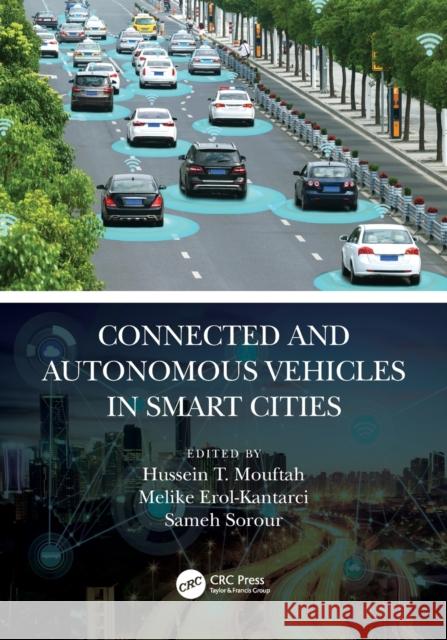Connected and Autonomous Vehicles in Smart Cities » książka
Connected and Autonomous Vehicles in Smart Cities
ISBN-13: 9780367637002 / Angielski
Connected and Autonomous Vehicles in Smart Cities
ISBN-13: 9780367637002 / Angielski
(netto: 287,97 VAT: 5%)
Najniższa cena z 30 dni: 277,00
ok. 16-18 dni roboczych.
Darmowa dostawa!
This book presents a comprehensive coverage of the five fundamental yet intertwined pillars paving the road towards the future of connected autonomous electric vehicles and smart cities. The connectivity pillar covers all the latest advancements and various technologies on vehicle-to-everything (V2X) communications/networking and vehicular cloud computing, with special emphasis on their role towards vehicle autonomy and smart cities applications. On the other hand, the autonomy track focuses on the different efforts to improve vehicle spatiotemporal perception of its surroundings using multiple sensors and different perception technologies. Since most of CAVs are expected to run on electric power, studies on their electrification technologies, satisfaction of their charging demands, interactions with the grid, and the reliance of these components on their connectivity and autonomy, is the third pillar that this book covers. On the smart services side, the book highlights the game-changing roles CAV will play in future mobility services and intelligent transportation systems. The book also details the ground-breaking directions exploiting CAVs in broad spectrum of smart cities applications. Example of such revolutionary applications are autonomous mobility on-demand services with integration to public transit, smart homes, and buildings. The fifth and final pillar involves the illustration of security mechanisms, innovative business models, market opportunities, and societal/economic impacts resulting from the soon-to-be-deployed CAVs. This book contains an archival collection of top quality, cutting-edge and multidisciplinary research on connected autonomous electric vehicles and smart cities. The book is an authoritative reference for smart city decision makers, automotive manufacturers, utility operators, smart-mobility service providers, telecom operators, communications engineers, power engineers, vehicle charging providers, university professors, researchers, and students who would like to learn more about the advances in CAEVs connectivity, autonomy, electrification, security, and integration into smart cities and intelligent transportation systems.
This book presents a comprehensive coverage of the five fundamental yet intertwined pillars paving the road towards the future of connected autonomous electric vehicles and smart cities. The connectivity pillar covers all the latest advancements and various technologies on vehicle-to-everything (V2X) communications/networking and vehicular cloud computing, with special emphasis on their role towards vehicle autonomy and smart cities applications. On the other hand, the autonomy track focuses on the different efforts to improve vehicle spatiotemporal perception of its surroundings using multiple sensors and different perception technologies. Since most of CAVs are expected to run on electric power, studies on their electrification technologies, satisfaction of their charging demands, interactions with the grid, and the reliance of these components on their connectivity and autonomy, is the third pillar that this book covers.
On the smart services side, the book highlights the game-changing roles CAV will play in future mobility services and intelligent transportation systems. The book also details the ground-breaking directions exploiting CAVs in broad spectrum of smart cities applications. Example of such revolutionary applications are autonomous mobility on-demand services with integration to public transit, smart homes, and buildings. The fifth and final pillar involves the illustration of security mechanisms, innovative business models, market opportunities, and societal/economic impacts resulting from the soon-to-be-deployed CAVs.
This book contains an archival collection of top quality, cutting-edge and multidisciplinary research on connected autonomous electric vehicles and smart cities. The book is an authoritative reference for smart city decision makers, automotive manufacturers, utility operators, smart-mobility service providers, telecom operators, communications engineers, power engineers, vehicle charging providers, university professors, researchers, and students who would like to learn more about the advances in CAEVs connectivity, autonomy, electrification, security, and integration into smart cities and intelligent transportation systems.











